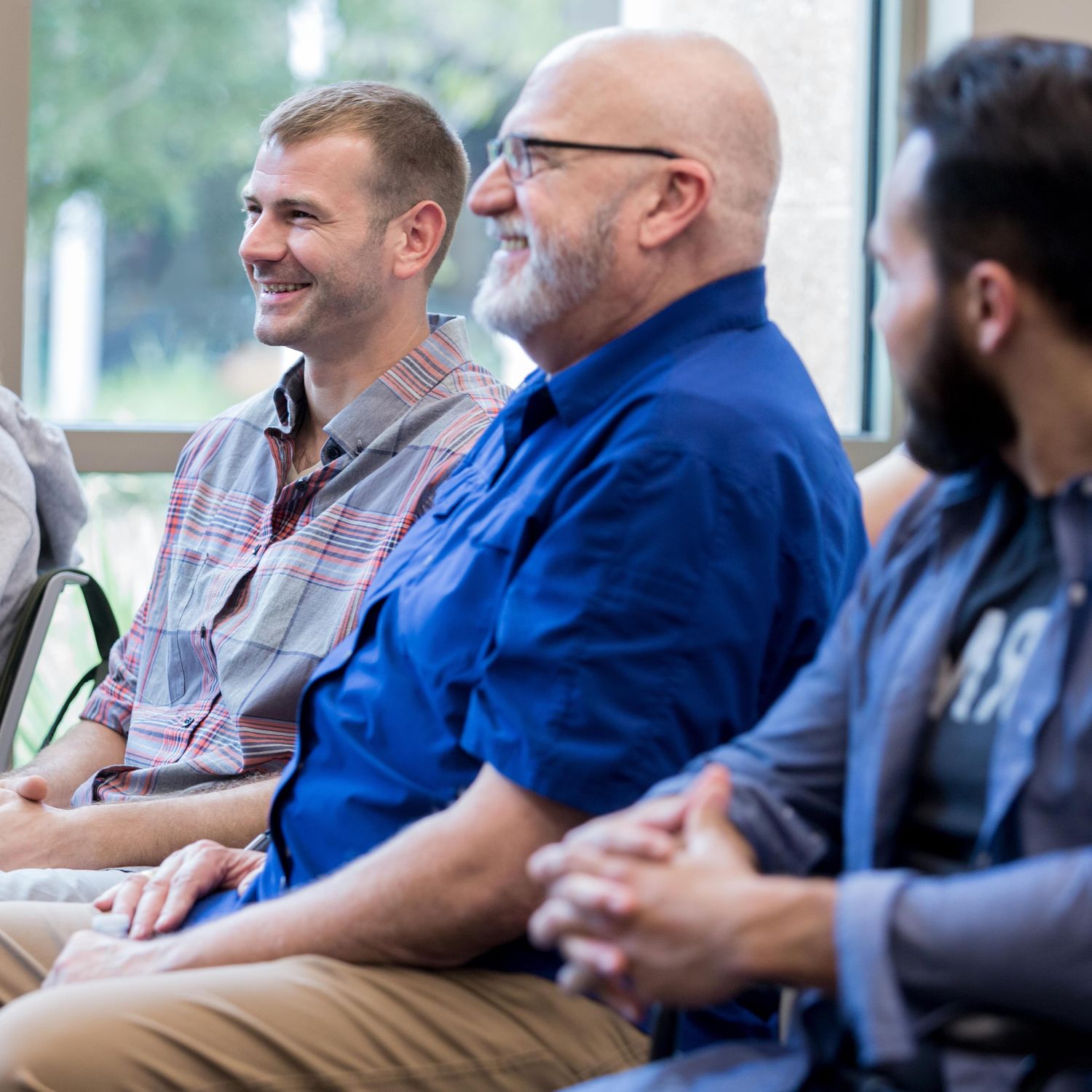How group therapy is beneficial for addiction recovery
Group therapy typically consists of a group of people (usually between seven and 12) and a therapist. Group therapy sessions are confidential.
In the first session everyone in the group might introduce themselves and share why they are there. The therapist might go on to encourage members to discuss their progress and experiences. The structure of therapy sessions is varied and will depend on the style of the therapist taking the session. It also depends on the nature of the subject being explored.

There are several types of group therapy out there:
- Psychotherapy groups – based on relationships that are built between people
- Cognitive therapy groups – attempts to restructure the beliefs a person has that lead to negative or harmful behaviours
- Dynamic group therapy – looks at dynamics between individuals within a clearly defined boundary
- Relapse prevention groups
- Mutual self-help groups – Groups of people with similar experiences helping each other manage or overcome issues
- Network therapy – Type of psychotherapy where family and friends of the client are involved
When looking at overcoming addiction, having a strong support network is key. Just by listening to how others cope with certain situations can be beneficial. Group therapy also allows for members to learn interpersonal skills and helps to uncover how your behaviours can impact other people. These are all important when on the road to recovery.
Group therapy has been effective for the treatment of drug and alcohol addiction for years. There are many factors as to why it is so effective, some are mentioned below:
- It is a natural way to overcome a problem. Humans tend to build and grow with others around them, whether that’s at work or as a family. Therapy can be the same.
- It allows for others within the group to support you and help you set and achieve your goals to recovery.
- It opens your mind to new ways of thinking. You are able to try these out in a safe space before taking them out in the real world.
- Other members of the session may be having the same challenges as you. It allows you to view the challenge you face in a different way by looking at it through someone else’s experience.
There are several differences between group therapy and support groups. Choosing which is most suited to you can be difficult.
Group therapy:
The goal of group therapy is change. When you realise that there is a recurring problem with your life and you realise that the change has to start with you. This therapy is designed to enable you to understand yourself better in order to change the thoughts and behaviours that lead to problems in your life.
Support groups:
The goal of support groups is to help you cope. This is when you realise that you cannot cope through a difficult thing in your life alone. It is also when you need more support than family and friends can provide. All group members will be going through a similar situation.
There are many different 12-step support groups out there. Alcoholics anonymous being the foundation framework for other groups. They all have roughly the same structure. The main difference being the individual group and connection one person has with the rest of the members.
The 12-step model provides encouragement, accountability and support for people who genuinely want to overcome their addiction. As well as the regular meetings, sponsorship models can also provide social support which has helped countless people to stay clean.
The groups are free of charge. There is no judgement. People can be members of a group immediately after attending rehab, long after attending a rehab programme or without ever going through rehab.
There are both open and closed groups. This means that some groups allow for any members to join at any point during the session programme whereas closed means it's only for members with similar characteristics.